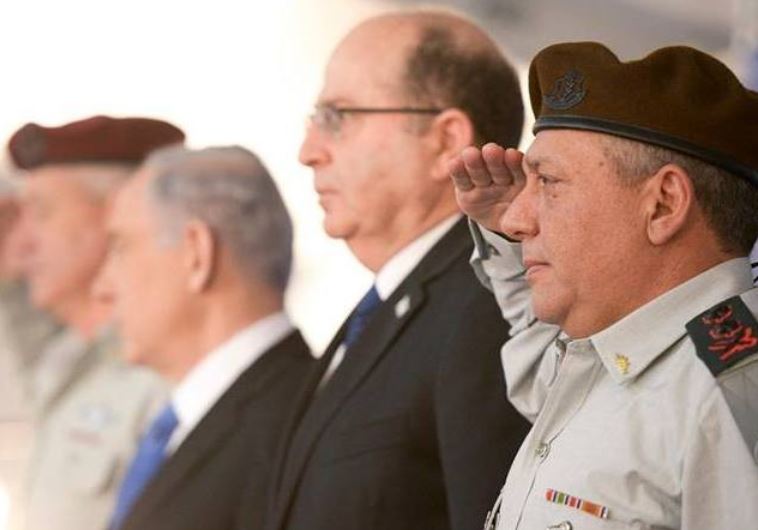IDF scrambling to find new military intel research chief
Brig.-Gen. Eli Ben Meir announces sudden resignation after ongoing personal disputes with Military Intelligence chief.
 IDF chief of staff Gadi Eisenkot (R), Defense Minister Moshe Ya'alon, and Prime Minister Benjamin NetanyahuUpdated:
IDF chief of staff Gadi Eisenkot (R), Defense Minister Moshe Ya'alon, and Prime Minister Benjamin NetanyahuUpdated: